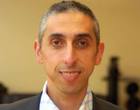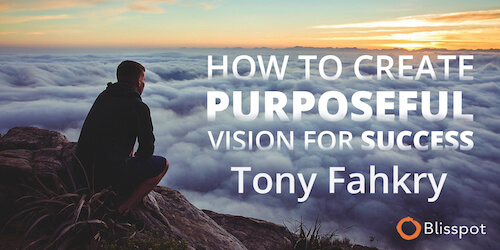Don’t put Pressure on Yourself to Succeed
“Start where you are. Use what you have. Do what you can.” ~ Arthur Ashe
Are you constantly frustrated with a growing list of things to accomplish in your life? Do you get a sense that no matter how hard you try; you can never get it done?
I’m not talking about a list of things to do, but of goals and plans. Here’s the thing: you will never get it all done, so stop placing that burden on yourself. We often place top priority on wanting to achieve certain goals, such as being in a romantic relationship, getting a job promotion or moving to a different city. We feel that by achieving these things, it will change our life or increase our happiness. But sometimes the pursuit of our goals can cause more disappointment than the success of achieving them.
Similarly, many people who embark on personal growth set out to change their life and become disappointed when they meet with resistance and lack of change. It is discouraging when you’ve spent months or years changing a behaviour without seeing significant results. I’ve been actively pursuing personal development for over fifteen years and experienced significant disappointments along the way. I’m not claiming to be further along that anyone else because our journey is a lifelong mission. However, there comes a point when you invest enough time and effort to create a solid foundation of wisdom and clarity. The message is simple: placing demands on how far along we should be in our life, puts pressure on ourselves to succeed.

Are you satisfied, your journey is different to others and you mustn’t compare yourself, even when things aren’t working out?
Contained within your failures are important lessons intended to help you grow and expand. It is when you stop doing the work that things slip backwards. Clearly, you are reading this because you are invested in your personal development or interested in the message this article has to convey. The journey of personal growth is not about achieving our goals, but growing into the person pursuing the goal. I liken it to someone who runs 10 miles every day but never enters a marathon. Yes, they will get fitter, but if they don’t intend to compete in a race, they will have achieved their results regardless because they are showing up to do the work.
Growth is Seldom Linear
“You can always tell your true values by looking at your behavior, especially under pressure.” ~ Brian Tracy
No matter your goal, you will likely make mistakes along the way and experience failure. But these are turning points that decide whether you reach your goal and who you become. I’ve coached hundreds of people over the last decade, who set out to achieve big goals. Many of my clients achieved them, yet some discovered an emptiness inside because their goals were not tied to a greater purpose. Some people’s goals were not altruistic but self-serving, based on what they believed would make them happy. Some were material goals, without a clear intent for pursuing them.
So, we ought to do what we can today, even if it is the smallest task.
The key is to show up consistently and not drop the ball. If we miss the opportunity to attend to our goals, we must try again tomorrow because trying is more important to our self-esteem than quitting. Even defeat and failure serve a purpose, and we can learn to harness these negative states instead of feeling disempowered by them. Similarly, we can choose a Growth mindset over a Fixed mindset. Whatever we decide, it will dictate how we move forward towards our goals.

Is this making sense? Are you getting the impression it isn’t about getting it all done, but attending to the smallest task consistently?
Growth is not linear, nor does it follow a projected pattern. Growth is cyclical like ocean tides. Sometimes, the tides are bigger and violent and other times small and tranquil. Yet, the intensity of our lessons does not decide the level of our achievement.
For example, tides are governed by the gravitational pull of the moon. They are influenced by the shoreline and shape of the bay, and local wind and weather patterns. Therefore, we cannot draw a conclusion on tide patterns because they will vary. The same is true of our personal growth; sometimes, we will make significant progress to improve our life, yet other times things will appear stagnant, as though we are stuck. I’ve seen this in my personal development, where I was getting ahead and things were moving along perfectly and then suddenly nothing! There would be periods where nothing happened, no matter how hard I tried. I was stuck, but that was not the case. I was being called to integrate my earlier lessons and use the downtime wisely before moving on.
Whether you are working on personal change, appreciate that growth is seldom linear. It will rise and fall like ocean tides. When you learn a new lesson, a downturn will often follow to cement your understanding so you can focus on your personal growth. Don’t worry about what will come next because the next tide will soon arrive and depending on what you have done in the earlier period, it will decide your next move.
So, for now, spend some time examining three areas of your life where you feel you’re not achieving your goals? Journal the lessons learned from your experience.
What is life asking you to learn? Are you willing to be patient and focus on integrating these lessons into your life?
It is when we stop putting the burden on ourselves to get it all done that everything will be achieved, in an easy and effortless way.








